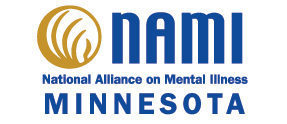Crisis and Mental Health Resources (NAMI)
If you or someone you know is experiencing a mental health crisis, help is available. There is hope. No matter the age or the challenges people face, help is a phone call, text, or online chat away. The following resources will help those in crisis.
The 988 Suicide and Crisis Lifeline
Calls or texts to these numbers will connect you to a crisis center where trained crisis counselors or mental health professionals are waiting to help. The calls are free and confidential.
|
call 988 Veterans: option 1 Spanish: option 2 LGBTQ+ Youth: option 3 After listening to options, there will be a pause while you are transferred to an available call center. Translation services available for 250 additional languages. |
Text "Help" to 988 Spanish: Text "Ayuda" to 988 -or- Text "HOME" to 741741 for National Crisis Text Line |
Chat 988lifeline.org/chat/ Chat Spanish: 988lineadevida.org
ASL Crisis Support Click "ASL Now" on 988lifeline.org |
|
The Trevor Project for LGBTQ Youth: 1-866-488-7386 Text START to 678678 Chat thetrevorproject.org/get-help |
Mobile Crisis Teams in Minnesota Every county in Minnesota has professional crisis teams that can come to you, help resolve a crisis, and link you to needed services. 911 dispatchers can connect you to your local crisis teams; it may be most effective to call them directly. |
|
Translifeline Support by and for the Trans Community 1-887-565-8860 |
Veterans Crisis Line 988 (option 1) Text to 838255 -or- Call Vets4Warriors 1-855-838-8255 |
Minnesota Farm and Rural Helpline 1-833-600-2670 Text "FarmStress" to 898211 24/7 help for rural Minnesotans experience stress, anxiety, or depression. Trained counselors can also connect you to resources for business, financial, or legal help. |
CALL 911if there is IMMEDIATE DANGER to you or someone else |
|
Stay calm and tell the dispatcher "This is a mental health emergency" and ask for a Mobile Crisis Team |
If a Mobile Crisis Team is not available, Ask for a CIT Trained officer (Crisis Intervention Team) |
Be prepared to share information about mental health history, diagnosis, triggers, what has worked in the past, details of the current situation, and more. |

